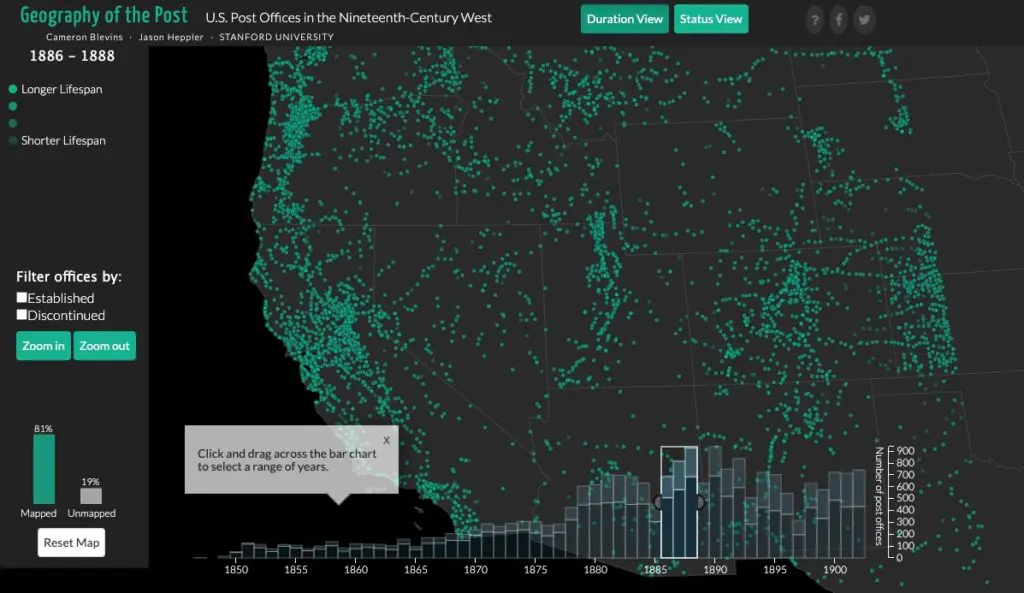The cognitive dissonance of the so-called Republican “agenda” is on acute display, wherein mortal threat to a literally enumerated power of the Constitution given to Congress to establish a federal US postal service seems not to bother the Constitutional originalists one bit. Not to mention said power’s role in facilitating free and fair elections. Curioser and curioser!
Somehow, one of the nation’s oldest institutions — instrumental in both our political and economic history throughout its existence — is suddenly considered yesterday’s fish by the seemingly randomly fiscal conservative. It’s, apropos of nothing (except an upcoming election in a pandemic), nigh time to punish the historic public service for not being more focused on the opposite of its stated mission:

The USPS is synonymous with American independence
Moreover, the origin of the importance of the post to the Founders of the nation lies even deeper within the soul of the formation of American independence: as a backlash to the British Stamp Act of 1765.
The colonies’ budding sense of unity was emboldened by collective action overtaken to dislodge the British Imperial Post (and its taxes with it), and this sentiment continued to grow through related historical affronts including the Townshend Acts of 1767, the Boston Massacre of 1768, and the Tea Party of 1773 into the full-fledged political pursuit of independence waged as the American Revolutionary War.
Foundational Acts: Establishing the post was a first priority
Benjamin Franklin became the first Postmaster General when the Second Continental Congress created the Constitutional Post in 1775. In his first term, the nation’s inaugural President George Washington signed the Post Office Act into law, establishing the USPO in early 1792. By the end of his second term, the number of post offices, miles of post roads, and post revenues had grown by 400%.
Washington spearheaded the creation of the post with help from James Madison. With it the two philosophical fathers of the revolution established both a right to personal privacy and a right to public information for citizens of the new nation. They specifically made it cheaper to send news — believing that an informed population was of utmost importance to a self-governing country.
Alexander Hamilton helped the fledgling post office with legal challenges it faced as it modernized, including a dispute with contracted stagecoach services who refused to adhere to delivery standards. Alexis de Tocqueville was impressed by the postal service on his historic visits to the new nation, convinced that the organizational capability of the early post office was essential to sustaining this fledgling American experiment with democracy.
Without the post, no West
Not to mention that, historically speaking, it’s likely there would have been no westward expansion without the post office. Cameron Blevins’ awesome infovisualisation of post office openings and closings between 1850 and into the 1900s clearly shows the reach of the system and its status as the veins and arteries of a rapidly scaling up nation.


Roads in general owe their ubiquity and quality to pressures from the mail service to provide reasonable passage for delivery. The Pony Express provides to this day some of the most iconic imagery and symbolism Americans associate with the Wild West.
The postal service was the largest communications network of the 19th century; it bound the nation back together to some small but not insignificant degree following the Civil War. Later, the Air Mail Service of the Unites States Post Office Department would be inaugurated only shortly after motorized plane flight was in regular usage towards the end of World War I.
Without the West, no America
Anyone care to argue that this country would be the same without the great American West? Surely not you, Texas — nor you, Montana. Not even Wyoming. Our national self-conception as a people of Manifest Destiny — a people whose boundless horizons were thrilling, exciting, and full of possibility. Of social mobility. Of personal responsibility.
The American identity is bound to the West. Our entrepreneurship, our creativity, our explorative and adventurous spirit finds itself embodied in the iconic images of the cowboy, the dusty plain, the purple mountains’ majesties that we all learn in childhood curricula. How would we ever have shared that imagery in the first place, if not for the post?
By the way, did you know that the Postal Service is the United States’s second largest civilian employer? After Walmart.
For all of the above reasons and more: this idea of kneecapping the United States Postal Service to further one’s election ambitions is neither moral, legal, nor historical.


